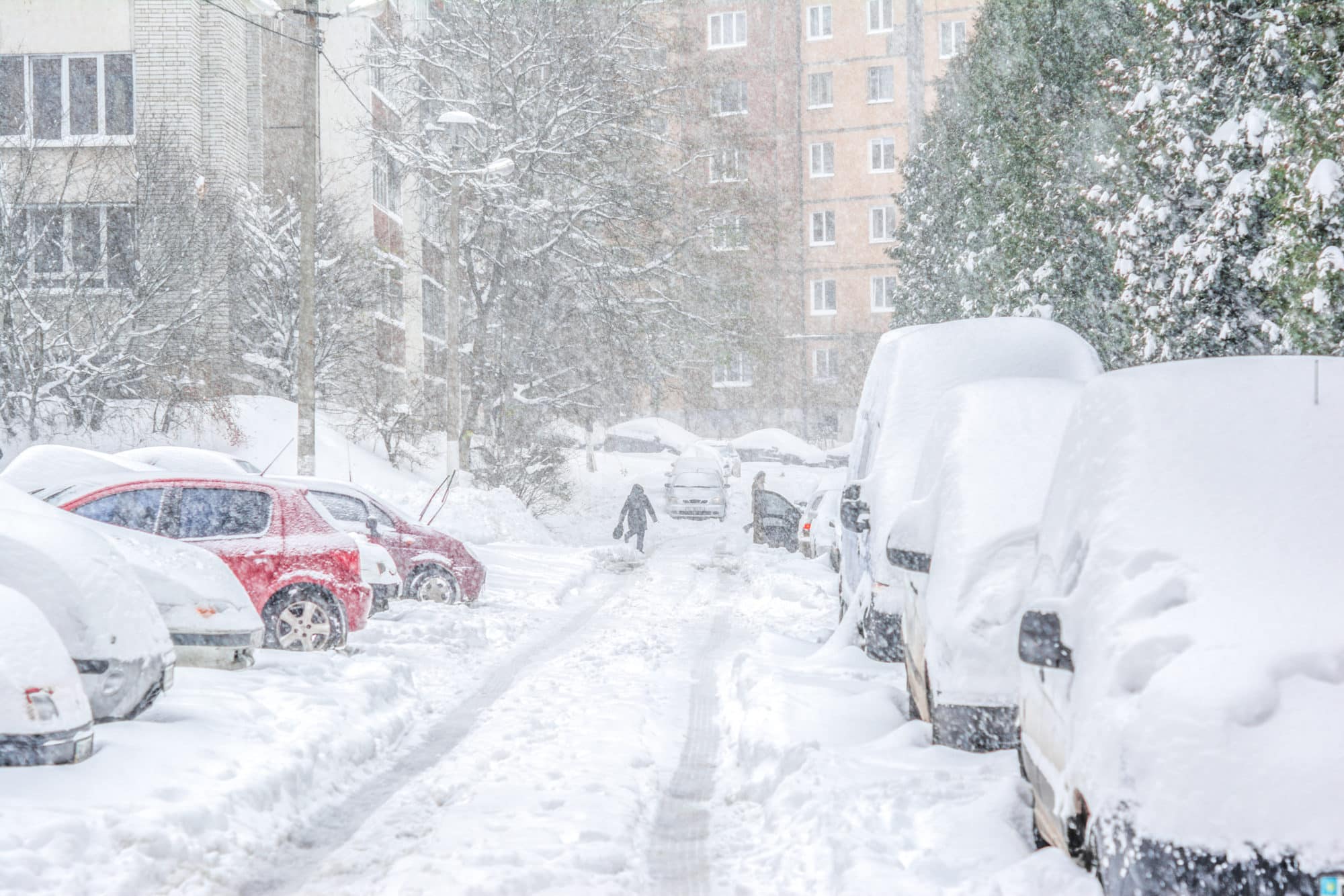With an average of 46 inches of snow each year, Boston drivers get their share of winter driving. However, many drivers fail to heed the warnings to stay off the roads during bad storms or to prepare themselves properly for a winter road trip. Nationally, about 17% of all vehicle crashes occur during winter conditions, making it clear how necessary listening to road officials and preparing for seasonal driving is.
Read on for tips that can help keep you safe when you are out on the roads in and around Boston this year.

Share This Image on Your Site
Copy and paste the code below to add to your website.
Before You Go
Before heading out for a winter drive, be sure to plan your route and pay attention to weather forecasts and road conditions. You can obtain this information through local radio or news stations. You should also let someone know where you’re going, what route you plan to take, and when you anticipate arriving.
If there is snow on your vehicle, make sure you clear it from the windows, lights, hood, and roof before leaving.
In Your Car
You should prepare a winter driving kit and place it in your car. A few items that your kit should contain include:
- Flashlight with batteries.
- An extra bottle of windshield wiper fluid. The winter formula will keep the fluid from freezing.
- Basic car care items, including jumper cables, flares, and a tire jack.
- Snow shovel, broom, and ice scraper.
- A bag of abrasive material, such as sand or kitty litter, that can be placed beneath the tires for traction if you get stuck.
- Bottled water and nonperishable snacks.
- Blankets or sleeping bags.
- A change of clothes, including socks, mittens, and a warm hat.
Under the Hood
While routine maintenance of your vehicle is important year-round, it is especially so in the winter. Before snow flies, you should check — or have a mechanic check — the following:
- Battery: Batteries lose their power in cold weather. In diesel and gasoline vehicles, your battery requires more power to start.
- Lights: Be sure your headlights, tail lights, brake lights, turn signals, emergency flashers, and interior lights are all working.
- Windshield wipers and wiper fluid.
- Antifreeze.
- Brakes and brake fluid.
Remember to also check your tires and to replace worn tires or tires intended for summer driving with studded snow tires or at least tires with fresh tread. You will need to check the air pressure in your tires regularly during the winter, as cold weather reduces the tires’ inflation.
On the Road
The following tips could keep you safe while driving in winter conditions:
- If you don’t have to be out in the storm, stay home. Home is the safest place to be when the roads are bad.
- Use your headlights during periods of low visibility, even in the daylight hours.
- Slow down. The leading cause of wintertime car accidents is drivers traveling too fast for the conditions of the roads. Remember that speed limits are determined based on dry roads. Icy roads require a slower speed.
- Leave at least six seconds of distance between your car and the car in front of you. Even on dry roads, it takes a certain amount of distance for a car to safely stop, depending on the size and weight of the vehicle. That stopping distance is increased when the roads are slippery.
- Don’t use cruise control on icy roads. If you begin to slide, your vehicle will continue trying to maintain its set speed.
- Four-wheel drive doesn’t mean four-wheel stop. Don’t get overconfident in your 4×4.
- Be cautious of bridges and overpasses, as they are the parts of the road that will become icy the fastest.
- If you start to slide, don’t panic or press on the brakes. Instead, turn into the skid, wait until the vehicle has gained traction and then accelerate slowly.
- Do not try to brake and turn on ice. Instead, brake first, then slowly turn, then slowly accelerate.
Jimmy Knows® How to Help You Through Winter!
While preparing for winter driving is important for your safety, it won’t protect you from the careless or reckless actions of someone else. If you have been injured in an accident that was the result of someone’s failure to prepare for winter, or they were just being reckless, you can pursue compensation for your injuries through a car accident lawsuit. Jimmy Knows® how to help you seek the maximum settlement you’re entitled to. Our team will make the legal process easy for you while you focus on recovering from your injuries. Contact us for a free case review.

















